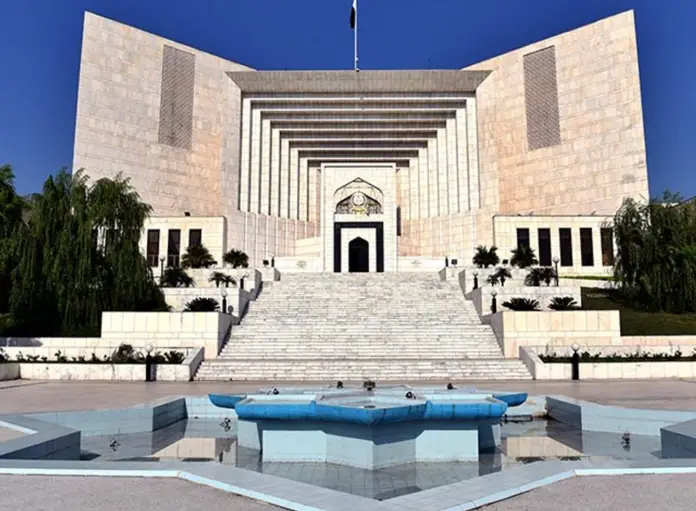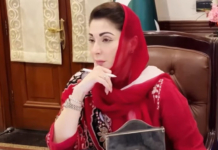Chief Justice of Pakistan Justice Umar Ata Bandial advised the Attorney General of Pakistan (AGP) Ashtar Ausaf to carefully consider the appointment of National Accountability Bureau (NAB) chairman on Friday.
The Supreme Court was hearing a suo motu notice case on the apprehension of persons in authority undermining the criminal justice system. During the hearing on the issue of the appointment of the NAB chairman, the CJP remarked that one should not be influenced by the opinion of anyone outside the system over the appointment. The CJP advised the AGP that the NAB chairman should be a competent and trustworthy person, and therefore, his appointment should be made with careful consideration.
CJP Bandial stated that the NAB should not tolerate pressure to bring a case without merit. “If NAB is under pressure, write to us. That does not imply that you must pick and drop any case you want,” he said. The CJP said there was a high-profile drug case which made headlines and when the investigating officer was asked about it, he had commented that it was a bogus case. The CJP questioned the AGP regarding the process for removing names from the Exit Control List (ECL) at the start of the hearing.
Justice Aijaz ul Hasan inquired as to why 444 names were removed from the ECL so swiftly. “There is no mention of the revisions being retroactively applied. How may ministers whose names appear on the ECL chose to have them removed?” CJP Bandial asked while pointing out that “the court placed Khawaja Saad Rafique’s name [on the list],” to which the AGP responded that Rafique was not present at the cabinet meeting that approved the amendments.
“The [amended] guidelines have been accepted by Khawaja Saad Rafique, according to the records. Shouldn’t ministers have kept their distance from the situation?” Justice Akhtar questioned. “How is it possible to use a government decision for personal gain? Is there a code of ethics for ministers when it comes to personal matters?” he asked. According to the AGP, a personal case was not sent to the minister in question because of the code of conduct. Justice Akhtar was perplexed as to why the code of conduct had not been implemented.
The attorney general, on the other hand, contended that if the prime minister’s name is on the ECL, the cabinet could not make any decisions. “It would be appropriate to construct such a government in which no one’s name appears on the ECL,” Justice Akhtar observed. The court was not considering the case to penalize anyone, according to the CJP.
Justice Akhtar inquired as to who made the decision to apply the amendments retroactively, to which the AGP responded that the decision was made by a subcommittee. The AGP said, “In my opinion, the ECL should not exist.” The CJP, on the other hand, stated that the court would not consider personal opinions in the case. “When exerting power, honesty, justice, and transparency should be considered,” the CJP continued.
Separately, Supreme Court on Friday observed that it would examine changes being made to the National Accountability Ordinance 1999 – the NAB law – by the federal government as it could not overlook the efforts to “minimise the role” of the accountability watchdog. The remarks were made by Chief Justice Umar Ata Bandial during the hearing of a suo moto case against alleged intervention in high-profile cases, including that of Prime Minister Shehbaz Sharif and his son Chief Minister Hamza Shehbaz, by the government.







